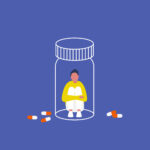
In her debut blog, Alice Dawson summarises an updated systematic review on risk factors for suicide in prison. The strongest risk factors identified were suicidal ideation, previous suicide attempt, history of self-harm, single-cell occupancy, and current psychiatric diagnosis.
[read the full story...]







